BOBBY DARIN * DECEMBER 25 (No. 1)
![]()

A MCRFB VIEWING TIP
ON YOUR PC?To fully appreciate this Billboard Hot 100 December 21, 1968 chart feature click on image 2x and open to second window. Click image anytime to return to NORMAL image size.
Click your server’s back button to return to MCRFB home page.
On your mobile device? Tap on chart image. Open to second window. “Stretch” chart across your device screen to magnify for largest print view.

These were the record singles you bought in 1968. Many went on to become the most popular radio airplays heard on AM radio in Detroit, December, on Top 40 CKLW, WKNR, WXYZ, and conservative album-oriented, easy-listening WJR radio.
![]()
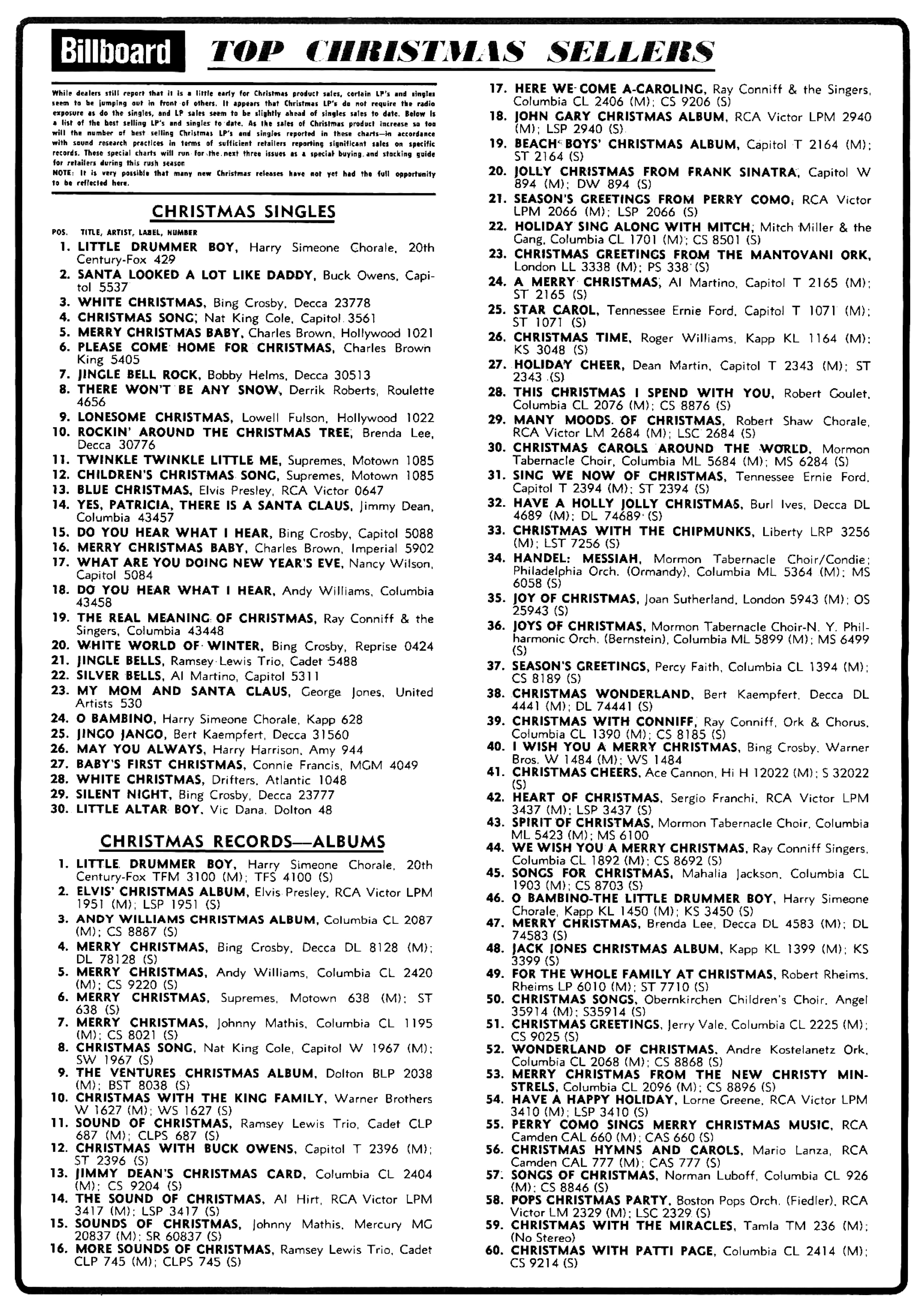
(From Motor City Radio Flashbacks. Merry Christmas!)
A MCRFB VIEWING TIP: On your PC? You can view the above Billboard chart ENLARGED. For a larger detailed view click above image 2x and open to second window. Click image anytime to return to NORMAL image size.
Click your server’s back button to return to MCRFB.COM home page.
On your mobile device? Tap over image(s). Open to second window. “Stretch” across your device screen to magnify for larger print view.
![]()



— Christmas Memories From the Soundtrack of Your Life —
Click on (COMPLETE LP) for the complete track listing on this album.

![]()

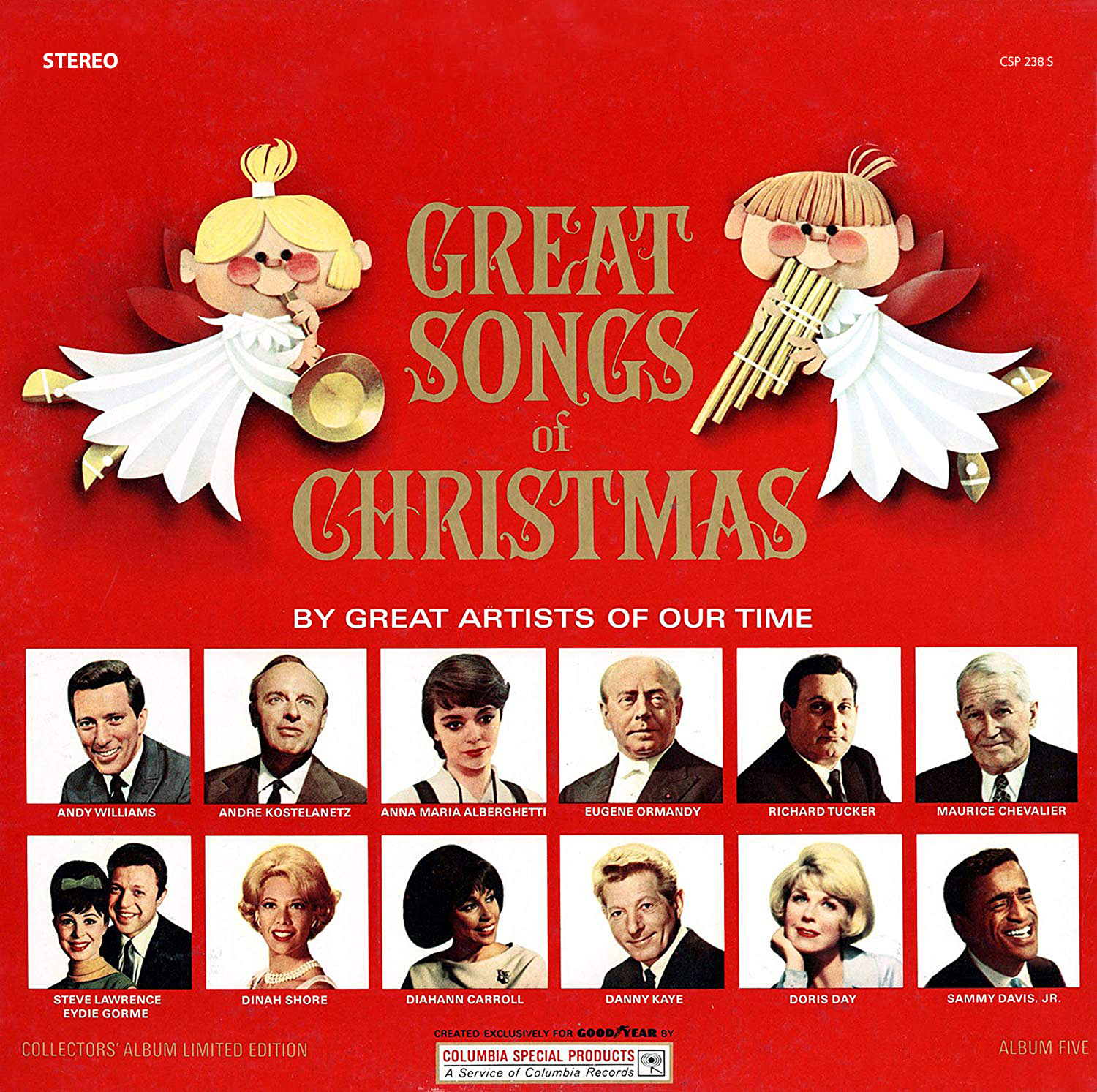
*****
In the 1960s and 1970s, Goodyear Rubber & Tire Co., in partnership with Columbia Records Special Products, released a series of Christmas LPs, made available exclusively at all their Goodyear shops around the country.
This album, ‘Great Songs of Christmas‘, was issued as #5 and was released in 1965.
Comprised of various artists of the day, in this album you will hear traditional holiday yuletide songs, as sung by national and international stars from the decade.
19 songs, 13 artists. Andy Williams, Maurice Chevalier, Doris Day, Diahann Carroll, Danny Kaye, Diana Shorr, Steve & Eydie, and more.
Purchase price for this LP as was sold at the time, only $1.00. The complete tracks for this album can be found HERE
Created exclusively for Goodyear
— Christmas Memories From the Soundtrack of Your Life —

![]()
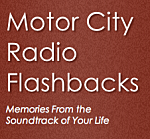 From the MCRFB NEWS archive: 1963
From the MCRFB NEWS archive: 1963
Juke Box Play Ceases As Nation Mourns
NEW YORK — Play on the nation’s 450,000 juke boxes was back to normal Friday, November 29, but for a 72-hour period last week few Americans had the stomach to listen to the mechanical music makers.
 Automatic phonograph and game collections last weekend and Monday, November 25 were scanty, as millions of Americans stayed by their radios and television sets to watch the news developments and to view the funeral of President John Fitzgerald Kennedy.
Automatic phonograph and game collections last weekend and Monday, November 25 were scanty, as millions of Americans stayed by their radios and television sets to watch the news developments and to view the funeral of President John Fitzgerald Kennedy.
Even when surface normality was restored Tuesday, November 26, the gaiety commonly associated with taverns and restaurants were muted. And when patrons put their coins in the juke box, they did so in an almost mechanical manner.
Manhattan itself was almost a ghost town through the weekend and on Monday, November 25. Normally, Friday and Saturday nights are the big money makers for Gotham tavern owners. And these are the evenings that get that the heavy jukebox and game play. But few patrons were in the mood to play the juke box or coin-operated games. Most of them stayed home and watched the ceremonies on TV.
In Chicago, the coin machine business ground to a halt immediately following the tragic and bizarre series of events connected with the assassination of the President.
Juke boxes and games were shut off as the city’s attention turned elsewhere — first to the tragic scenes in Dallas, then to the mournful culmination of those scenes coming out of Washington, Monday, November 25.
Chicago Clubs Closed
Throughout the Windy City night clubs were closed, neon signs were dimmed and while some taverns were operating — at half capacity or less — talks inside were loosely centered on the Dallas tragedy and news instead, by its patrons, while glued to the establishment’s TV sets. Bands and combos were silent. Friday was the worst evening as people just couldn’t seem to comprehend what had happened.
By Tuesday did locations start to return to normal and even then the return was gradual and deliberate. Juke boxes which have been turned to the wall, were again plugged in, but there was no rush to play the coin-op record machines.
A check with the trade showed that over-all collections were off s much as 50 per cent or more. The comments of Earl Kies, head of Apex Music Company, are typical.
“We know for sure collections will be affected — we can judge by the service calls, they’ve been nil.” Kies said his service men were out on the streets but none had more than two calls a day.
“Many of the locations had out-of-order signs on the juke boxes,” said Kies. The Chicago juke box operator estimated that close to 80 per cent of his machines were down for the weekend and that his week’s collection would be off from 30 to 35 per cent.
Cleveland Juke Boxes Silent
In Cleveland, a crack of 21 guns echoed against the concrete and brick walls of the empty heart of this city this past Monday, November 25, the national day of mourning.
The city wept.
Virtually all businesses and industry closed down. Neon lights closed their eyes. Nightclubs and cafes, restaurants and movie houses closed their doors. A few remained open but there were few found inside.
A number of bars remained open but coin operated games and juke boxes remained silent. One bar which served a few patrons honored President Kennedy’s memory by displaying signs which over the darkened jukebox: “Will remain silent (today) in honor of our departed President — The Management.”
Most operators in this area reported the same experience. The few drink spots that remained open pulled the plugs from the music machines. Radio and television sets kept their patrons informed at every detail of the assassination and the burial of the former President.
The area operators generally figured the take for the day to be but a fraction of the normal volume. “But who can be concerned about it at a time like this,” said one prominent music man.
Joseph Abraham, president of Lake City Amusement, one of the oldest operators in terms of years in the business, reflected everyone’s attitude concerning the death of President Kennedy. “We’re all very shocked . . . we will be for a long time. It seems impossible that would happen in our country. Everything closed down. The bars, restaurants, a lot of plants and offices.
“Sure we lost some income . . . . but who cares at a time like this? All the boys feel the same way. Who could think of dollars and cents at this hour?”

Charles Comella of Cadillac Music Company added: “We’ve actually been out of business since Friday, the day President Kennedy was assassinated. And believe me we’d stay out of business for two more Fridays if we thought it would bring him back!
“One of our locations that stayed open the day of the burial reported that the men sitting at the bar broke down and cried. We all were crying inside. It helped us put our lives in proper perspective.”
Milwaukee Pulls Stop On Music
In the state of Wisconsin, the same effects were reported from Milwaukee. Juke boxes stopped spinning Friday afternoon when the stunning news of the assassination of President Kennedy flashed over radio and TV sets. For the rest of the weekend the city’s taverns remained somber and silent.
“There has never been anything to compare to this type of reaction. Everything halted completely when the news hit. The music stopped and hasn’t started up yet,” reported Harold Opitz, Wisconsin Novelty Company, on Tuesday morning, November 26. “There has been no gaiety around here for four full days. Some of our better stops here say they never experienced anything like it. A lot of our locations cater strictly to Negro clientele. We they are quiet, you can bet tavern business is quiet all over. Many of the pubs completely closed down until after the President’s burial.”
According to Sam Hastings, Hastings Distributing Company, president of the Milwaukee Phonograph Operators’ Association: “We haven’t had time to completely evaluate the drop off. But, we know our take fell at least 25-50 per cent below normal.
“Our best barometer is the number of service calls we receive over a given period. Saturday, we had one service call. Normally we expect several dozen service calls during the weekend. From what other operators tell me, they all experienced the same decline in business as we did. It was noticeable all over the metro Milwaukee area. Tavern business was hit hard, and so was the coin machine industry.” END
___
(Information and news source: Billboard; December 7, 1963)
![]()
 From the MCRFB news archive: 1967
From the MCRFB news archive: 1967
Meek Gave Top 40 Radio Its Identity
Dallas — Bill Meeks, Pams’ President, didn’t invent top 40 radio, but it’s quite likely that top 40 radio wouldn’t be where it is today if there hadn’t been a Bill Meeks. Meeks helped give top 40 radio its zing . . . its identification.
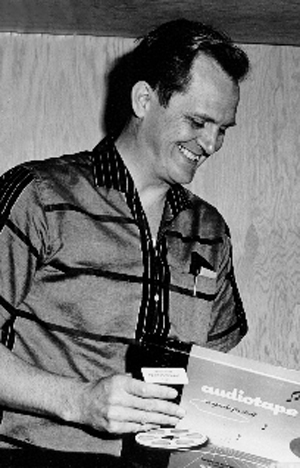
Meeks, a musician at home on saxophone, clarinet, of flute, got into the jingles-producing business while serving as air personality and salesman with KLIF here in 1947 . . . “the first jingles I ever heard of,” he said. He remembered one of those jingles as slashing on TV: “No worn-out old-time movies, no picture tubes to fail . . . ” It should be pointed out that Gordon McLendon, head of KLIF, was one of the pioneers in top 40 radio.
When Meeks began selling some of his jingles to other radio stations, “an odd thing began to happen. These stations began to climb in ratings.” In 1951, Meeks started Pams.
That first year of business, Pams did $300,000 worth of business. Meeks expects to close out 1967 with more than $1.5 million in business. Some of these will be new logos for all four of ABC’s new networks. Meeks was in town last week working on the project. In addition, he is branching out of the pop music field to also specialize in R&B and country music formats. Pams tailored the jingles used on WVON (R&B) in Chicago; the station climbed to No. 1 in a recent general Pulse audience survey and, as Meeks put it, “We were there when it happened.” Meeks is also going into the TV field on a larger basis.
Started In 1936
Meeks entered the radio business in 1936 with WRR in Dallas playing with a kid band called the Humdingers. The late Ben Riddle was a member of the band.They had a Sunday show on the station called “Primrose Parade” sponsored by an oil company. Then Meeks entered North Texas State. He continued to perform, substituting with bands like the Light Crust Dough Boys and the Cass County Kids. It was about this time he met McLendon, who encouraged him to become a KLIF salesman. KLIF had two salesmen, Meeks and a man named Bruce Collier. Meeks said he had Collier’s phone tapped “so I’d know who his clients were, I had to . . . he was really a slick salesman.”
While selling advertising, Meeks was also a deejay. At one point he had a CBS show starring one of his bands — the Circle Five Ranchhands — that originated out of Houston (the band would drive down from Dallas every Saturday). He also had a live show with a band doing a daily remote from a Dallas used car lot.
Employs 33
Today, Meeks operates a firm employing 33 (most of whom are professional musicians) and keeps two studios in Dallas busy. To illustrate the flexibility of his staff members, Rick Sklar, program director of WABC in New York, and Walter Schwartz, then general manager of WABC, once saw Pams’ Tommy Lloyd at work in the studio on trumpet. Later the same day, they saw and heard Lloyd playing in a band at the State Fair. That night, visiting the local LeVee nightclub, Schwartz and Sklar were surprised to see Lloyd , this time playing in a club band. He then saluted WABC right in the middle of “Sweet Lorraine,” by playing the WABC logo.
Meeks said that the turning point for Pams was in 1960 when he came up with a variable logo recording method to allow the various logos of stations to be recorded over the same big band instrumental, giving every station its own big band sound.
Besides having jingles packages in every major market in the United States, Pams products are in countries like Australia, Great Britain, Canada, Hawaii, Mexico, and South America. The firm just completed logos for the new BBC pop music programming service in England. END
___
(Information and news source: Billboard; December 2, 1967)
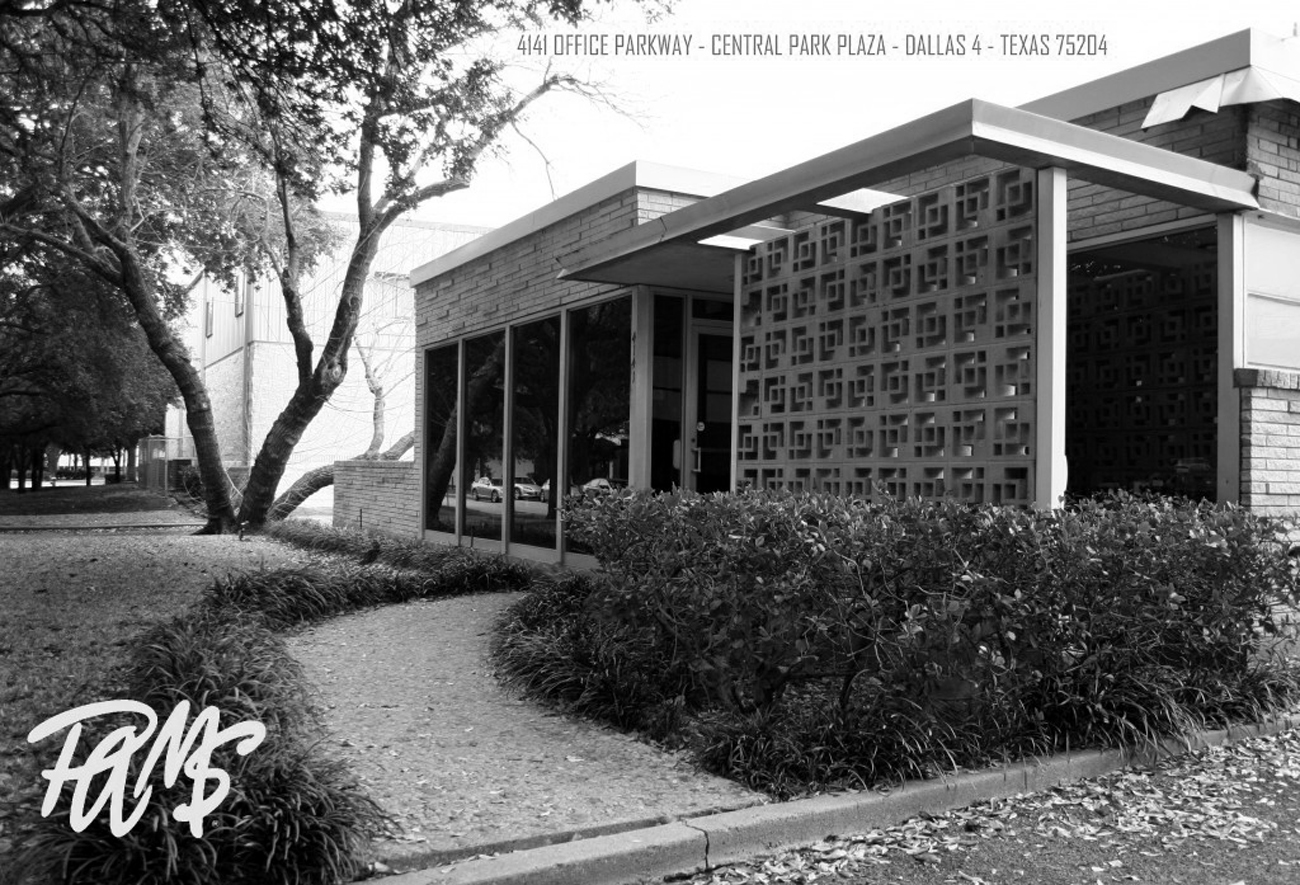
![]()